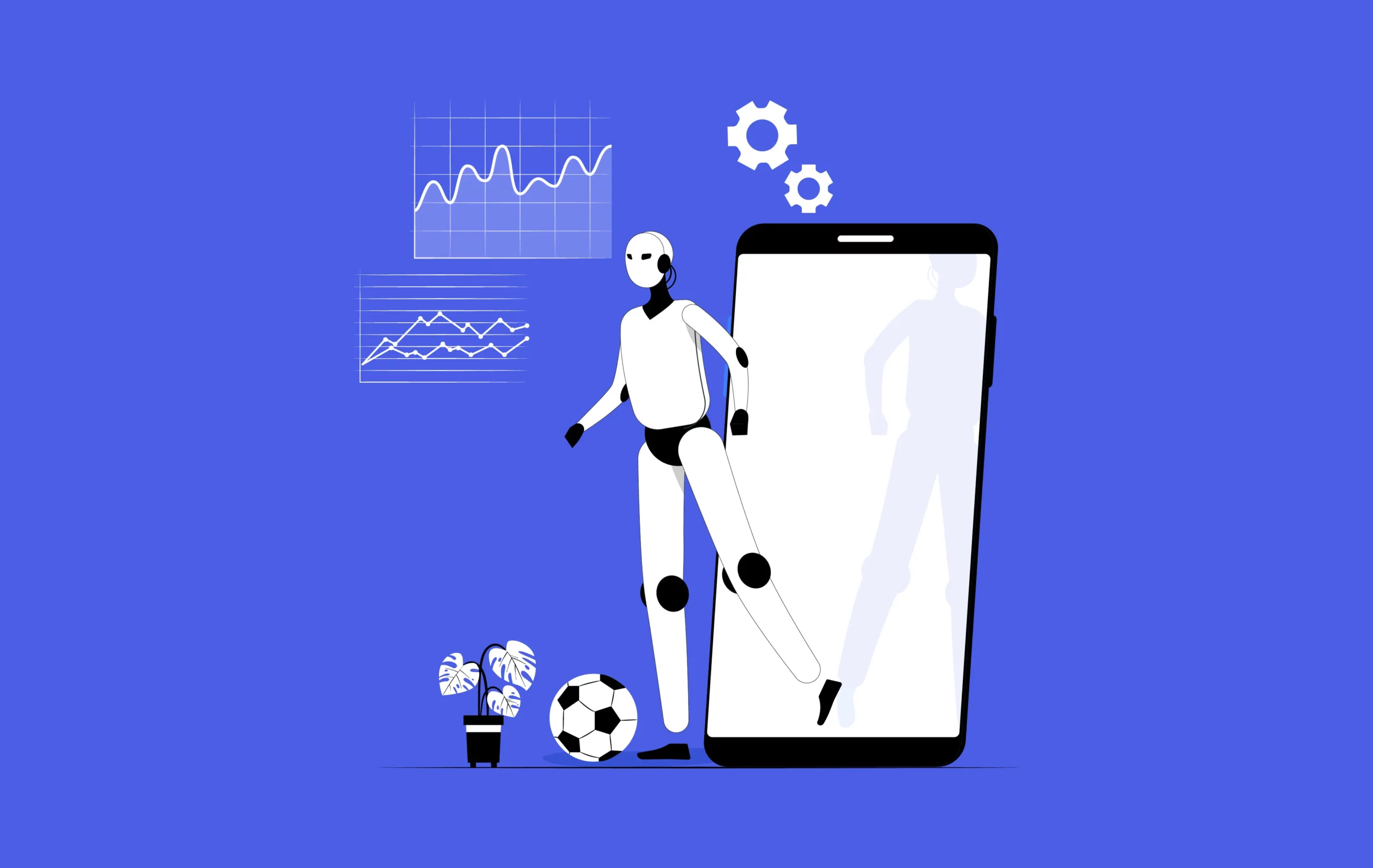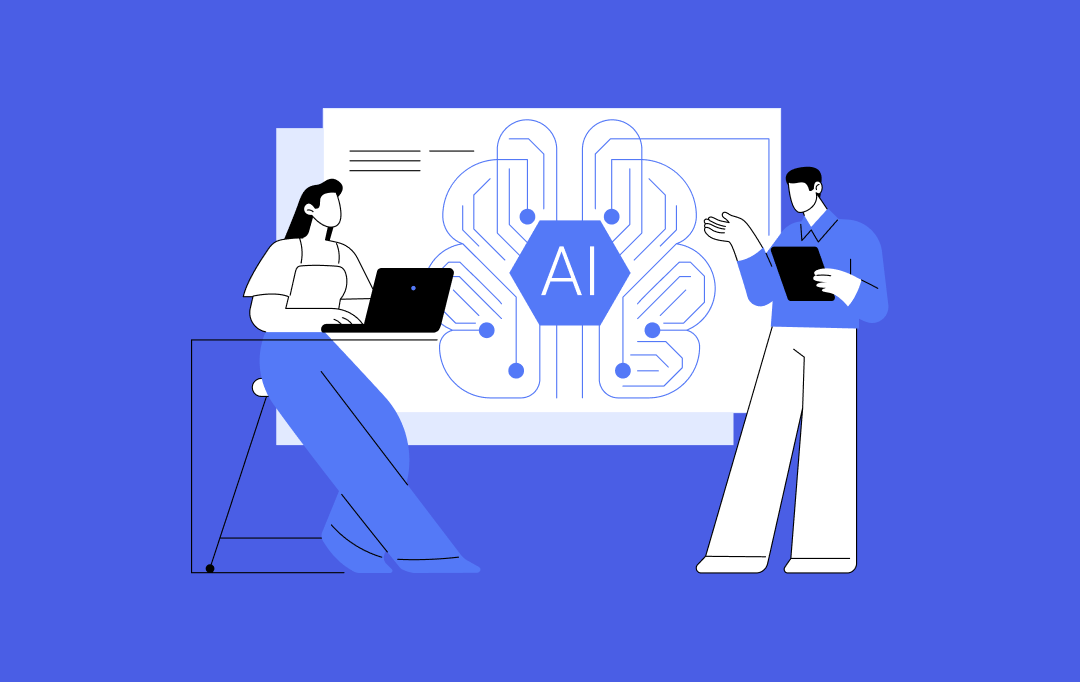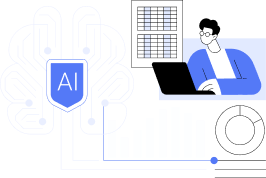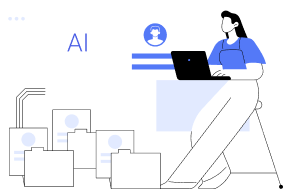- Understanding AI PaaS
- Key Comparison of AI Deployment Models: PaaS, SaaS, and On-Premise
- Essential Components of an Enterprise AI PaaS
- Cloud Infrastructure and Computing Power
- AI Frameworks and Development Spaces
- Ready-Made Models and Automated Machine Learning (AutoML)
- Microservices and API Integration
- Data Management and Governance Tools
- Lifecycle Management, Reporting, and Monitoring
- Security and Compliance Modules
- Why Enterprises Need AI PaaS
- Fixing the Talent Gap
- Getting Rid of Infrastructure Problems
- Getting Products Out Faster
- Simplifying Integration with Existing Systems
- Scalability and Flexibility
- Democratizing AI with Business Teams
- Key Features of AI PaaS
- Pre-Built AI Models
- Automated Machine Learning (AutoML)
- Scalable Cloud Infrastructure
- API-Driven Integration
- Data Management and Governance
- Low-Code and End-User Interfaces
- Security and Compliance
- AI PaaS Industry-Specific Use Cases
- Retail and eCommerce
- Medical and Life Sciences
- Banking, Financial Services, and Insurance (BFSI)
- Manufacturing and Industry 4.0
- Telecom and Media
- Transport and Logistics
- Energy and Utilities
- Government and Public Sector
- Overcoming Obstacles in Enterprise AI Platform (AI PaaS) Implementation
- Getting Stuck with One Vendor Problem
- Keeping Data Safe and Adhering to Regulations
- Relying Too Much on Cloud Setup Problem
- Performance Constraints for Specialized Workloads
- Complexity of Enterprise-Wide Implementation
- Balancing Innovation with Operational Risk
- The Future of AI PaaS: Emerging Trends and Opportunities
- Drive Enterprise AI Success with Appinventiv’s Expertise
- FAQs
Key takeaways:
- With the introduction of AI into daily processes, organizations are turning to adaptive and data-driven approaches to business, which improve efficiency and innovation.
- Using the AI Platform-as-a-Service (PaaS), businesses can develop scalable AI applications in a short time, simplifying their work and minimizing infrastructure complexities.
- AI platforms that offer pre-developed models and user-friendly interfaces allow non-technical employees to apply AI solutions to encourage innovation within departments.
- From healthcare to finance, industry-specific AI models on PaaS are bringing businesses to respond to the unique needs of the sector in a fast and precise manner.
AI has moved beyond experimentation to become the connective tissue of modern enterprises, quietly orchestrating processes, insights, and outcomes. Enterprises now no longer merely adopt tools; they are embedding intelligence into the very rhythm of operations, turning routine workflows into informed, adaptive, and strategic actions.
Globally, the level of adoption of AI by businesses has been 78% in 2024 (Source: HAI Stanford), with almost 90% either using or intending to use AI in their businesses by the year 2025. Companies like FinQuery are leveraging Google’s Gemini for Workspace to boost productivity and collaboration, while HCLTech has expanded its partnership with Salesforce to integrate agentic AI services, enhancing automation and decision-making.
These illustrations demonstrate how AI is transforming the workflow of enterprises, streamlining processes, reducing costs, and accelerating innovation. Still, numerous organizations have difficulties in achieving the full potential of AI because of the complexity of its deployment and integration.
The global Artificial Intelligence in Platform-as-a-Service (PaaS) market size is expected to reach $38.65 billion by 2033, growing at a compound annual growth rate (CAGR) of about 20.95% during the forecast period (Source: Business Research Insights)
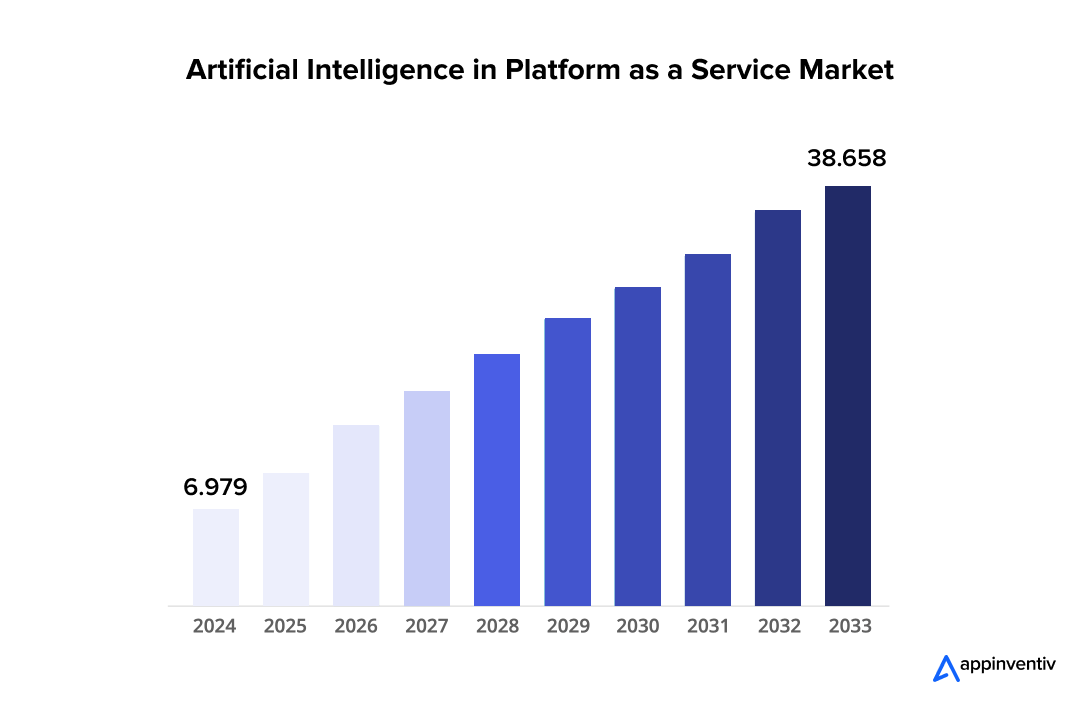
This growth is influenced by factors like rising enterprise demand for scalable AI solutions, faster cloud adoption, and the increasing need to simplify deployment and integration challenges.
AI Platforms-as-a-Service (AI PaaS) overcomes these challenges by offering a full infrastructure to stand up, run, and scale AI applications without the operational load of maintaining infrastructure. They have ready-made models, APIs, and integration services, which enable teams to concentrate on business solutions instead of technical configuration. Included scalability, collaboration functionalities, and compliance instrumentation allow AI PaaS to democratize AI, explore new solutions, and speed up time-to-value.
We discuss in this blog the way AI PaaS is transforming the adoption by enterprises, enabling them to use AI effectively and at scale, and to transform aspirational ideas into practical outcomes.
Let our experts help you bring intelligence into every part of your business
Understanding AI PaaS
AI Platform as a Service gives companies a cloud-based setup to build, launch, and run artificial intelligence apps without worrying about the technical backbone. Think of it differently from old-school AI systems or regular IaaS and PaaS options.
AI PaaS brings together scalable cloud power, frameworks like AI TRiSM, and plug-and-play APIs that make complicated stuff much simpler. Companies can use these platforms to roll out machine learning, language processing, or image recognition tools fast, even without a team of AI experts on staff.
AI PaaS brings together scalable cloud power, frameworks, and plug-and-play APIs that make it simpler for enterprises to develop and train AI models without worrying about the technical infrastructure backbone.
Most AI PaaS options for businesses come loaded with already-trained models and automated machine learning features. This means faster testing and quicker deployment of AI apps. When organizations pick an AI PaaS, they can zero in on tackling real business problems instead of dealing with servers, connecting software pieces, or building models from the ground up.
This all-in-one method reduces the time it takes to get to market, saves money, and opens up AI to a broader audience. Companies can grow their AI projects smoothly while keeping the flexibility and control they need over their information and applications.
Key Comparison of AI Deployment Models: PaaS, SaaS, and On-Premise
Companies looking at AI adoption need to think about more than just what these systems can do. They also need to understand what each deployment model will cost them. AI PaaS gives you a flexible, cloud-based platform for building and growing AI applications with reasonable ongoing costs. Enterprise AI PaaS implementations benefit from understanding MLOps vs DevOps frameworks to optimize model deployment pipelines and operational efficiency.
AI SaaS delivers ready-made AI software through subscriptions, giving you predictable costs and faster setup at a per-user price. On-premise AI requires a big upfront investment in equipment, software, and skilled people, but it gives you the most control and helps with compliance issues. The table below shows estimated costs and highlights the money differences to help organizations make smart strategic choices.
| Key Comparison: AI PaaS vs. AI SaaS vs. On-Premise AI | ||
|---|---|---|
| Model | Description | Estimated Cost Range |
| AI PaaS (Platform-as-a-Service) | Provides infrastructure, frameworks, and tools for building, training, and deploying AI models in the cloud. | $30,000 to $300,000 annually, depending on usage, scale, and provider (e.g., AWS, Azure, Google Cloud) |
| AI SaaS (Software-as-a-Service) | Ready-made applications with embedded AI features, delivered via subscription. | $30,000 to $100,000 annually; enterprise plans may offer volume discounts |
| On-Premise AI | AI infrastructure hosted and managed entirely within a company’s own data centers. | $500,000 to $1 million+ initial setup; ongoing costs include hardware maintenance, electricity, and staffing |
The key differences are clear. Each model reflects a distinct approach to AI adoption: cloud-based agility with PaaS, subscription-based simplicity with SaaS, and self-managed independence with on-premise. Choosing the right path depends less on the technology itself and more on how an organization envisions scaling, securing, and sustaining its AI initiatives over time.
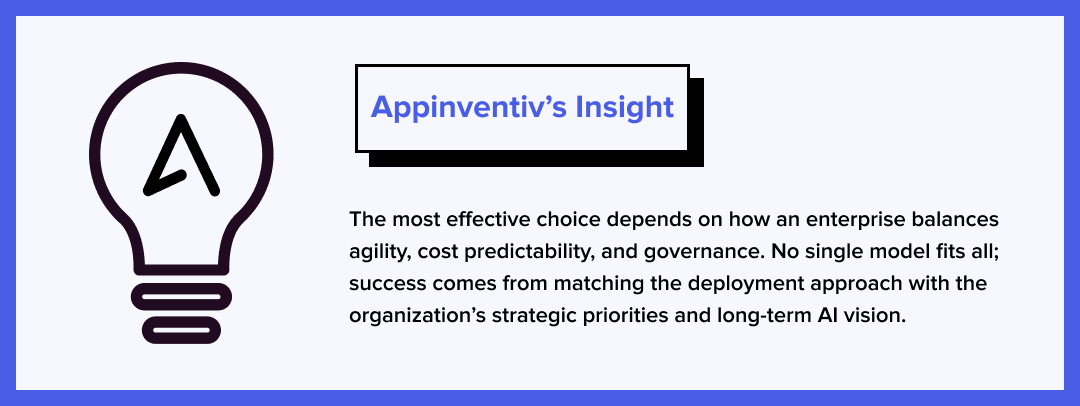
Essential Components of an Enterprise AI PaaS
Enterprise AI PaaS brings together strong infrastructure, advanced AI tools, and smooth integration capabilities. These components work together to make scalable model development possible, streamline deployment, and create collaborative workflows across different teams. When you combine these elements, organizations can speed up innovation while keeping control, security, and efficiency where they need to be.
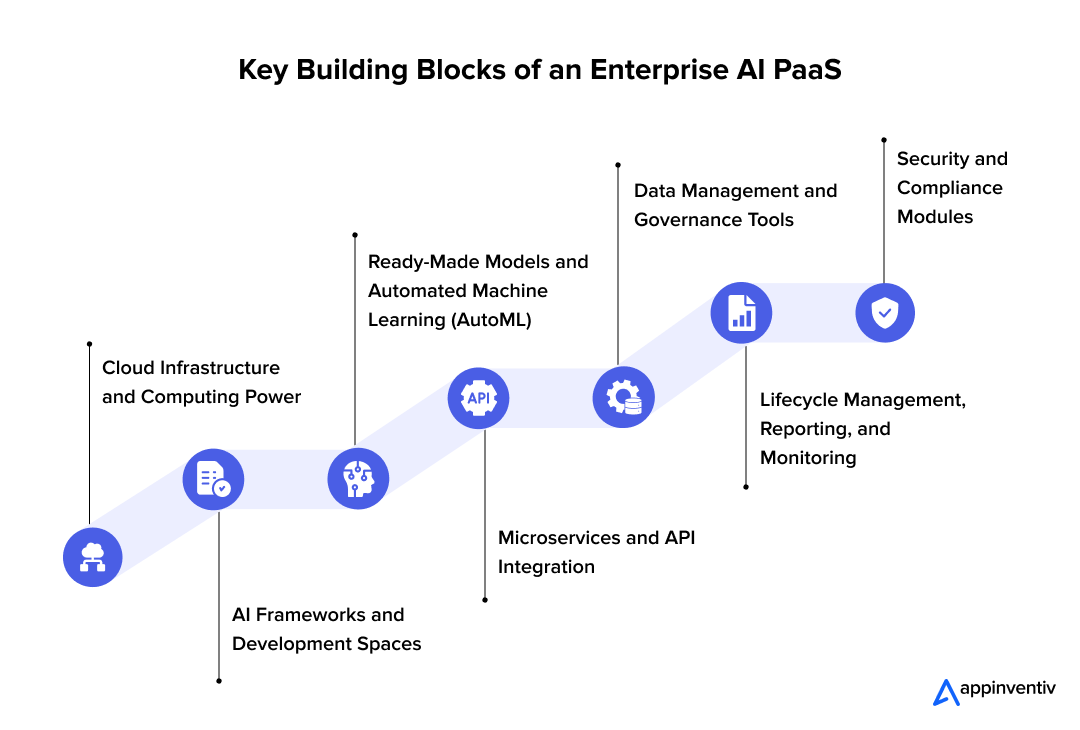
Cloud Infrastructure and Computing Power
The foundation of any AI solution needs scalable AI platforms for business that give you flexible computing power, storage space, and networking capabilities, and AI gigafactory infrastructure models represent the next evolution in providing dedicated, high-performance environments specifically designed for training and deploying enterprise-scale AI systems at unprecedented speed and efficiency.
AI Frameworks and Development Spaces
A robust artificial intelligence platform as a service comes with frameworks like TensorFlow, PyTorch, or scikit-learn that are already set up and ready to go. These environments make building models much simpler, so your data scientists and developers can create and launch AI solutions way faster than starting from scratch.
Ready-Made Models and Automated Machine Learning (AutoML)
Most enterprise AI platform options come with models that are already trained and AutoML tools that cut down the time it takes to get things running. This works great for tasks like predicting trends, processing language, or recognizing images. AutoML also handles picking the right model, training it, and checking how well it works without you having to do all that manually.
Microservices and API Integration
The continuity between AI and enterprises is essential. The core AI PaaS fundamentals are powerful APIs and microservices, which combine AI functionality with CRM, ERP, and analytics systems to provide real-time insights and workflow automation.
Data Management and Governance Tools
AI needs clean, structured data. The AI Platform as a Service offers data ingestion and preprocessing, and governance components, so the models can run on quality data and be in line with enterprise and regulatory regulations.
Lifecycle Management, Reporting, and Monitoring
Continued performance management is requisite. AI PaaS Solutions come with dashboards and lifecycle platforms to monitor model accuracy, usage, and drift to keep AI applications focused on business objectives.
Security and Compliance Modules
Security of sensitive information is a matter of no negotiation. The enterprise AI PaaS solutions include encryption, access controls, and compliance modules that ensure the AI workflows comply with regulations and enterprise-level data protection.
Why Enterprises Need AI PaaS
AI PaaS offers enterprises a unified platform to develop, implement, and scale smart applications effectively. It allows teams to experiment, work together, and integrate AI solutions throughout the organization without hassle. It centralizes tools and resources, which promotes swifter innovation and a smoother AI initiative adoption. Here are some of the reasons why enterprises require AI PaaS:
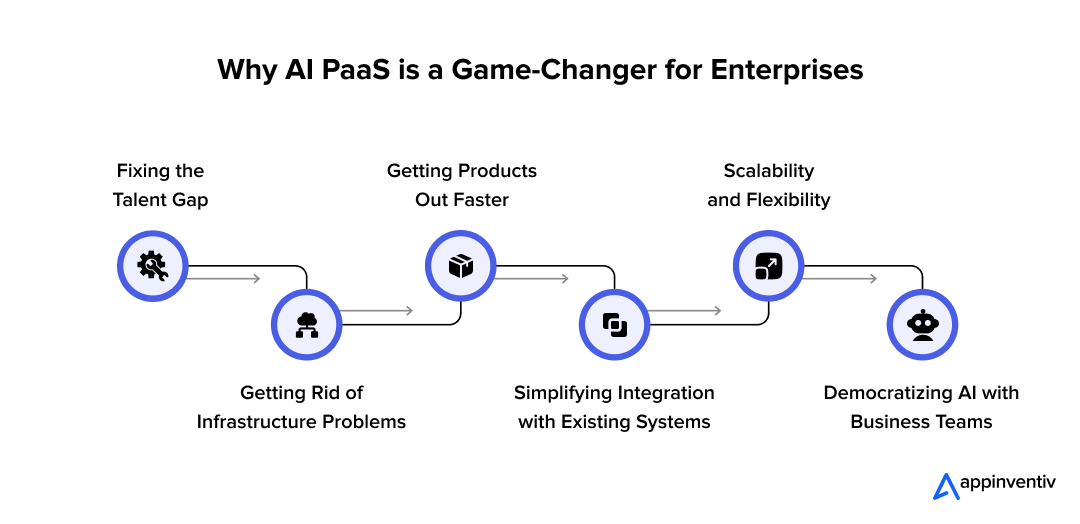
Fixing the Talent Gap
Most companies struggle to find and retain top AI talent. AI Platform as a Service gives you models that are already built, machine learning that runs itself, and development tools that anyone can figure out. This lets teams who know just the basics about AI create and roll out solutions that actually work. You don’t need as many specialists anymore, and projects get done faster. This makes AI possible for any enterprise type.
Getting Rid of Infrastructure Problems
Building your own AI setup costs a fortune in equipment, software, and keeping everything running. AI PaaS solutions for enterprises take care of all that mess by giving you cloud infrastructure that grows with your needs, AI frameworks that are already set up, and APIs that work together. Your business can focus on building smart apps instead of dealing with servers and storage headaches.
Getting Products Out Faster
Building AI applications from nothing takes forever and eats up resources. With Enterprise AI PaaS, companies get models that are already trained, pipelines that run automatically, and AI tools ready to go right out of the box. This means faster testing and launching of products and quicker deployment of your AI products and services.
Simplifying Integration with Existing Systems
Your AI projects need to align well with ERP, CRM, and other business software you already use, or they won’t add much value. AI PaaS implementation makes sure everything connects smoothly with your current systems. AI models and workflows can boost your business operations without breaking anything that’s already working. This creates a unified setup where AI insights are actually utilized in your daily work, rather than sitting on the shelf.
Scalability and Flexibility
Businesses can also require AI workloads to dynamically scale with business demand. AI Platform services offer easy-to-use, on-demand compute and storage services, enabling organizations to scale with ease, without being limited by hardware. This guarantees flexibility in operations and cost efficiency at any project size.
Democratizing AI with Business Teams
The AI Platform benefits include low-code interfaces, model-driven, and easy-to-deploy workflows that allow non-technical users to use AI in analytics, decision-making, and process automation. Such democratization promotes innovation within the enterprise, allowing teams to play a role in AI-based growth.
Key Features of AI PaaS
Using the appropriate features in an AI PaaS is essential to make sure that the platform can provide tangible business value. A proper combination of the right feature set enables organizations to scale and be compatible with the existing systems, and meet the changing demands. Here are some of the key features of AI PaaS:
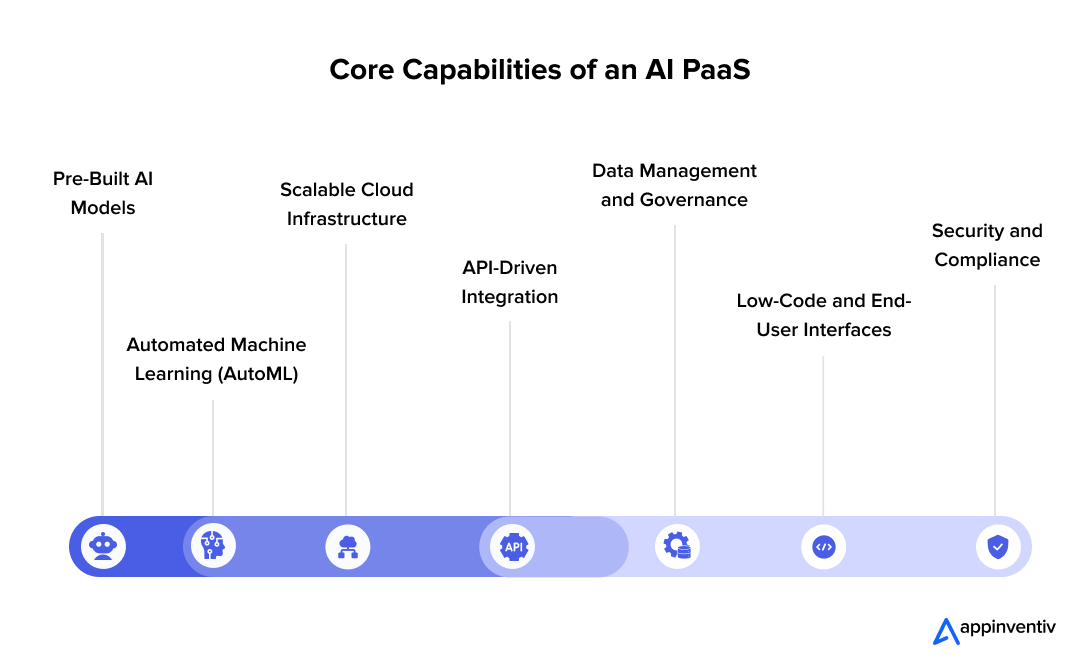
Pre-Built AI Models
One of the benefits of AI Platform as a Service lies in the availability of pre-trained AI models that are applicable in solving common business problems that include natural language processing, image recognition, and predictive analytics. The models save time on development, enabling enterprises to deploy AI solutions without the necessity of constructing models without foregoing accuracy and reliability.
Automated Machine Learning (AutoML)
AutoML functionality enhances the ROI of enterprise AI platforms. PaaS models of AI can automatically choose algorithms, optimize models, and measure performance, which does not require strong AI skills. This automation is faster in creating models and improves productivity in AI projects.
Scalable Cloud Infrastructure
AI PaaS architecture offers on-demand elastic compute and storage. Businesses are able to operate big AI workloads without the fear of infrastructure, which can guarantee steady performance against both complicated and high-volume applications. This scaling is useful in experimentation as well as production deployments.
API-Driven Integration
AI platform API integration enables businesses to integrate AI services with current enterprise systems, applications, and workflows. The APIs facilitate the use of AI in operations such as CRM, ERP, and supply chain management to create real-time understanding and automated decision-making.
Data Management and Governance
The implementation of AI needs clear, structured data. AI platform scalability solutions encompass tools in data ingestion, pre-processing, data governance, and security. All these will make AI applications run on high-quality data and meet organizational and regulatory criteria.
Low-Code and End-User Interfaces
Intuitive dashboards and low-code environments are common features of AI PaaS environments, enabling non-technical users to create and run AI solutions on them. This feature democratizes AI within the departments, increasing the usage and stimulating innovation in the enterprise.
Security and Compliance
AI projects in enterprises have to ensure the protection of sensitive data. AI PaaS services include in-built security, encryption, and compliance solutions that safeguard data and guarantee regulatory compliance, providing organizations a sense of safety in AI at scale implementation.
Security of sensitive information is a matter of no negotiation. The enterprise AI PaaS solutions include encryption, access controls, and compliance modules that ensure the AI workflows comply with regulations and enterprise-level data protection. For organizations with heightened security requirements, private AI infrastructure offers an additional layer of control over sensitive data.
AI PaaS Industry-Specific Use Cases
From finance and healthcare to retail and manufacturing, AI PaaS supports a wide spectrum of industry applications. It adapts to diverse business needs, enabling intelligent solutions across different sectors. This versatility allows organizations to leverage AI in ways that align with their specific goals and challenges. Let’s understand this by analyzing the key use cases of AI PaaS.
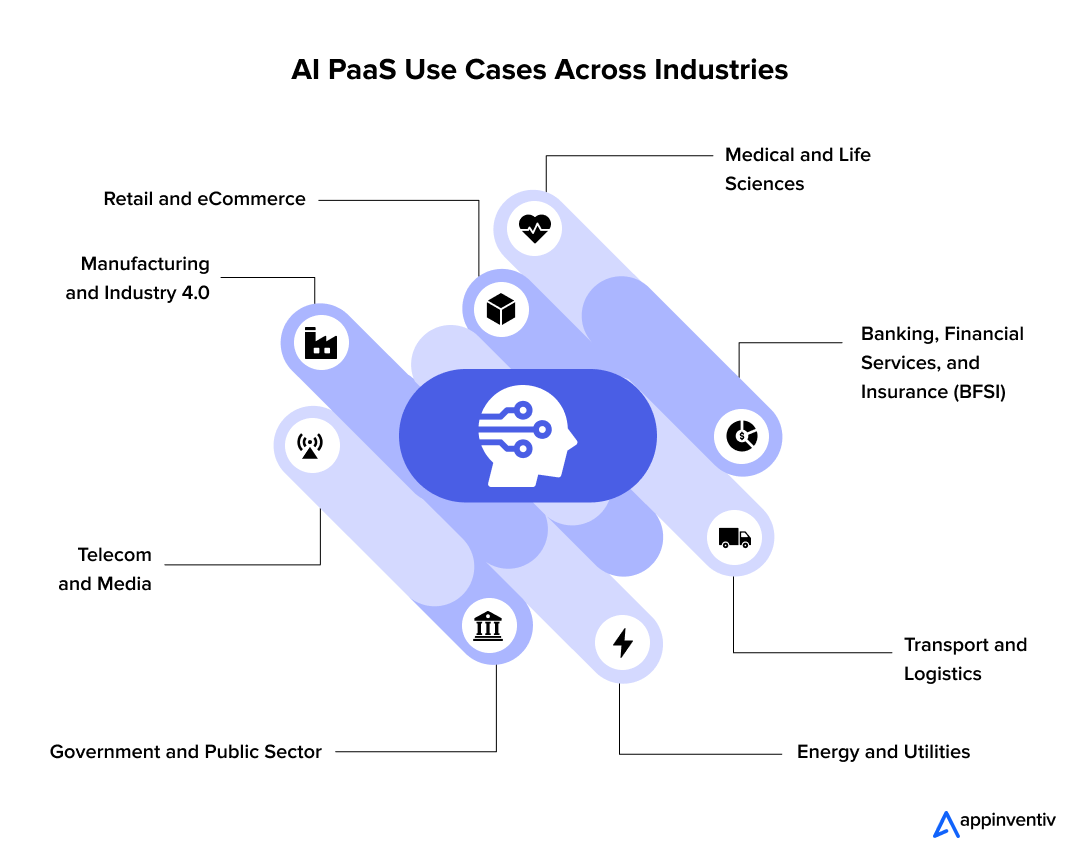
Retail and eCommerce
Trends are moving towards the use of AI Platforms as a Service, where retailers are seeking to revolutionize their interaction with customers and operations. Through its ability to analyze browsing history, transactional history, and trends in the market, AI can offer highly customized recommendations that can enhance the rate of conversion.
It is also useful in enabling enterprises to streamline their pricing strategies, optimize their supply chains, and forecast demand more accurately. In the case of e-commerce companies, this will become smarter inventory control and better customer satisfaction.
Medical and Life Sciences
The healthcare industry is a great beneficiary when it comes to utilizing AI for patient care and medical research. AI platform customization options enable hospitals to roll out diagnostic models to imaging, anticipate patient risks, and even custom-built treatment plans using genetic information. By modeling the molecular interactions with the help of AI, research organizations can speed up drug discovery. Customization is the key to achieving both clinical requirements and high regulatory standards for healthcare providers.
Banking, Financial Services, and Insurance (BFSI)
Strong AI PaaS architecture is needed in the financial sector, where reliability and precision are of utmost importance. The financial institutions apply Agentic AI to identify fraudulent transactions in real-time, carry out credit risk analysis, and enhance customer services with virtual assistants.
Automated customer profiling and claims management, insurance companies take advantage of these systems. By implementing AI in all operations, businesses can decrease losses, meet strict rules, and provide faster and more secure financial services.
Manufacturing and Industry 4.0
The manufacturing industries are opting for AI platform API integration for introducing advanced AI models with IoT sensors and industrial management features. This helps the factories to anticipate machinery failures, automate the inspection of quality, and minimize downtime.
With the seamless injection of APIs into the current workflows, manufacturers can open the gates to efficiencies and hasten their transition to Industry 4.0. The outcome is greater productivity, lowered costs, and a faster reaction to market needs.
Telecom and Media
Telecom providers operate large networks with large amounts of data, and an enterprise AI platform is essential. These platforms study the patterns of traffic, anticipate failures before they occur, and assist in the optimization of bandwidth allocation to millions of users.
AI usage in the telecom industry can be used to automatically tag content, recommend content, and provide analytics on audience behavior. Enterprise-grade AI tools allow companies to not only increase the reliability of services but also engage with customers more effectively, as targeted content delivery ensures greater customer attention.
Transport and Logistics
The transportation industry is one of the sectors that is immensely dependent on AI platform scalability solutions to manage the increasingly complex supply chains. Scalable AI has ensured that operational costs can be scaled worldwide without performance bottlenecks, particularly in terms of predicted shipment delays and optimized delivery paths.
Logistics suppliers enjoy the advantages of real-time tracking, cost-effective routes, and enhanced customer transparency. Scalability is also built in, which means that AI PaaS solutions can enable an enterprise to adjust to market changes and customer needs in a short period of time.
Energy and Utilities
The utility companies are being pressured to enhance efficiency and, at the same time, attain sustainability. Unless they are using AI PaaS Solutions for enterprises, they can predict the energy demand, optimize the grid, and ensure that equipment fails with predictive maintenance.
Such systems also help in the integration of renewable energy sources through load balancing and minimisation of waste. Companies within this industry not only save their costs but also contribute to the global environmental goals.
Government and Public Sector
Enterprise AI platforms are becoming the trend in the government sector as they seek to enhance service delivery and decision-making. AI-based virtual assistants may give people immediate access to information, whereas predictive analytics may assist in resource management of healthcare, education, and infrastructure.
AI is also used by public agencies to identify fraud within the benefits programs, as well as to bolster the security missions. With the integration of AI in governance, the administrations will be able to become more efficient, transparent, and trusted by citizens.
Overcoming Obstacles in Enterprise AI Platform (AI PaaS) Implementation
Successful enterprise AI implementation requires careful planning, the right tools, and seamless integration across teams. With the main complexities tackled in advance, organizations will be able to achieve the full potential of AI and make the adoption process a lot smoother. This strategy will be the groundwork for scalable, efficient, and impactful AI solutions. Let’s check out some of the implementation challenges of AI PaaS and solutions to overcome them:
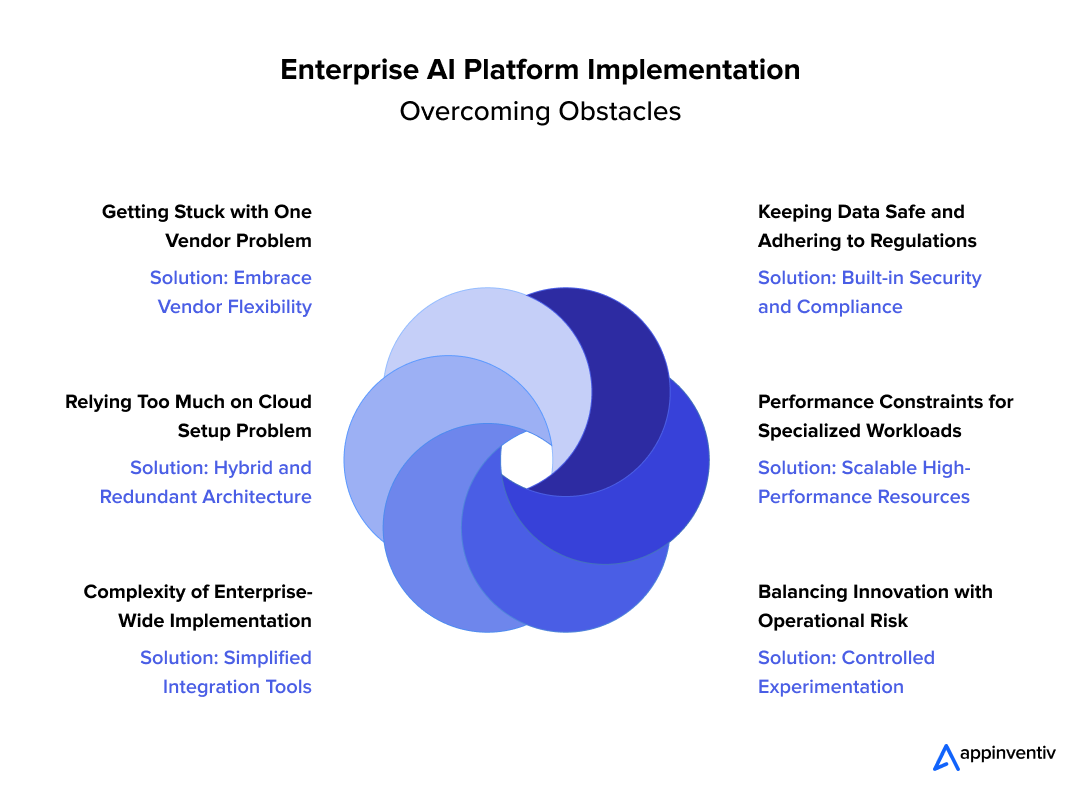
Getting Stuck with One Vendor Problem
Challenge: Companies that depend too much on just one AI provider might have trouble moving their work or adding new tech later on. When vendors use their own special tools, frameworks, and APIs, it can lock your organization in with that one company. This limits your options and makes things more expensive over time.
The Fix: Generative AI PaaS platforms often work with multiple clouds and use standard APIs that everyone can work with. Pick a platform that lets you move things around easily and export your data without hassle. This way, you can stay flexible, change providers when you need to, and add new AI tools without messing up what you already have running.
Keeping Data Safe and Adhering to Regulations
Challenge: AI apps usually work with sensitive customer information or important business data. This puts companies at risk legally and can hurt their reputation if they don’t follow privacy rules like GDPR, HIPAA, or CCPA properly.
The Fix: An AI as a service platform can give you encryption that’s already built in, access controls based on user roles, and certifications that prove they follow the rules. Your organization should also put strict governance policies in place and pick platforms that actually enforce regulatory compliance. This makes sure your data stays secure through every step of the AI process.
Relying Too Much on Cloud Setup Problem
Challenge: Cloud-based AI PaaS makes things convenient and lets you scale up easily, but it also means you’re counting on someone else’s infrastructure. When their systems go down, run slowly, or hit limits, it can mess up your important AI work.
The Fix: AI platforms for business often let you use hybrid setups or spread things across multiple clouds. Companies can set up backup systems, failover plans, and redundant operations to keep things running smoothly and cut down on downtime. This way, your critical AI apps keep working even when one service runs into problems.
Performance Constraints for Specialized Workloads
Challenge: Really specific or heavy-duty tasks like custom deep learning models, simulations, or big language processing jobs might be too much for standard AI PaaS setups. This can make things run slowly or hit resource walls.
The Fix: AI Platform as a Service options often give you flexible setups with GPU or TPU boost, infrastructure you can customize, and high-performance computing choices. When companies pick platforms with resources that can grow, they can handle tough workloads well while keeping costs reasonable.
Complexity of Enterprise-Wide Implementation
Challenge: Getting AI working in multiple departments or business units gets complicated fast. You need to connect it with old systems and get technical people working with regular business folks.
The Fix: AI PaaS solutions for enterprises come with connectors that are already built, interfaces that don’t need coding skills, and features that automate workflows. These tools make integration simpler, help you roll things out across different business units more smoothly, and let teams who aren’t tech-savvy use AI solutions without major headaches.
Balancing Innovation with Operational Risk
Challenge: Companies want to experiment with AI but can’t afford to mess up their day-to-day operations or throw money at technologies that might not work out.
The Fix: An enterprise AI PaaS lets you experiment in a controlled way through sandbox environments and small pilot projects. Teams can test AI models safely, make changes quickly, and expand the ones that work well. This gives you a good balance between trying new innovations and keeping your operations stable.
Our approach ensures smoother adoption by addressing technical and operational hurdles before they slow you down
The Future of AI PaaS: Emerging Trends and Opportunities
The growth of AI Platform as a Service is ever-accelerating, with the need for businesses to establish scalable, adaptable, and intelligent solutions. A number of trends and opportunities are bound to influence the next stage of enterprise AI adoption.
As businesses evaluate AI Platform as a Service options, they should also consider an enterprise guide to generative AI to understand how generative models integrate with existing PaaS infrastructure.
Edge AI Integration: The capabilities of AI are approaching the source of data, which allows making decisions in real-time, reducing latency, and optimizing the price of bandwidth. Edge AI, coupled with enterprise AI platforms, enables businesses to install AI where it is most required.
AI Democratization for Business Users: The next generation AI PaaS solutions for enterprises will enable non-technical personnel to develop and implement AI models through user-friendly interfaces, templates, and low-code workflows, extending its use to multiple departments.
NLP and Multimodal AI: NLP and multimodal AI together can process and produce text, images, audio, and video, offering deeper insights, automated content generation, and more intelligent customer communication with AI Platform as a Service.
Business Processes Hyper Automation: AI PaaS will be more and more connected to workflow and RPA, enabling organizations to automate their more complex business processes in end-to-end processes, cutting on manual effort and operational expenses.
AI Platform API Integration: The ease of API connectivity will enable businesses to add AI to the existing systems and apps, establishing a single ecosystem that will take advantage of enterprise AI platforms.
AI-Led Predictive and Prescriptive Analytics: The benefits of AI PaaS in enhanced analytics will enable businesses to make faster data-driven decisions, forecast trends, and optimize operations to enhance ROI and operational efficiency.
AI Modules Industry-Specific: The architecture of the future AI PaaS will consist of the ready-made models of healthcare, finance, retail, and manufacturing, and the enterprises will be able to roll out the AI solutions tailored to their needs in a short time.
Sustainable and Green AI Initiatives: The trend of AI providers is to concentrate on energy-efficient models and sustainable cloud infrastructure, which will assist enterprises in implementing Responsible AI and reducing environmental impact.
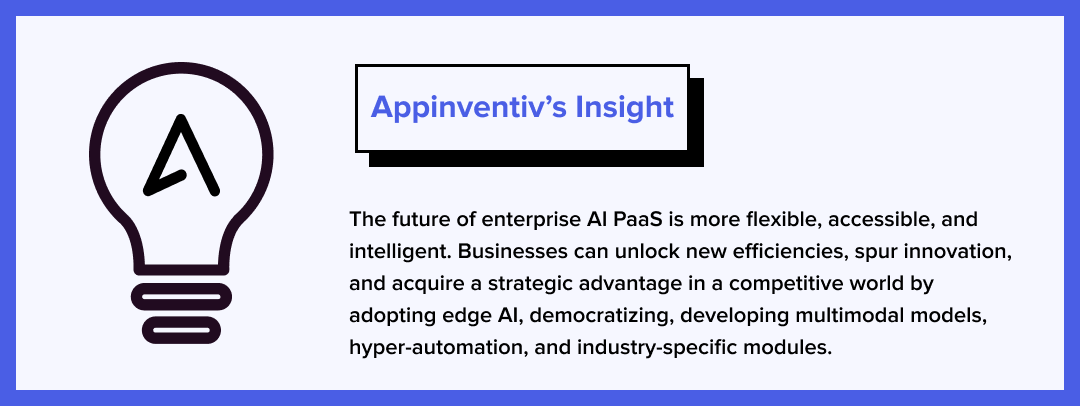
Drive Enterprise AI Success with Appinventiv’s Expertise
AI Platforms-as-a-Service are changing how companies work by making AI adoption simpler. They provide cloud-based infrastructure, ready-made frameworks, and flexible APIs that speed up innovation. With AI PaaS, organizations can focus on fixing business problems instead of dealing with complicated technical systems. This lets them test ideas faster, get solutions running quicker, and scale up AI work more easily.
Appinventiv provides end-to-end AI development services to help enterprises maximize the value of AI PaaS. We help find the right AI Platform as a Service model, set up architectures that can grow with your business, connect APIs, and customize AI applications for what your company specifically needs. Our credibility is reinforced by industry recognition and a strong portfolio of AI initiatives, including projects such as JobGet, Americana ALMP, MyExec, and Vyrb.
Our reputation and industry awards back up our ability to get real results. We have been recognized as a Deloitte Technology Fast 50 India Winner in both 2024 and 2023, made it onto Clutch’s Top 100 Fastest-Growing Companies 2025 list, and has been called out by The Economic Times as a Leader in AI Product Engineering & Digital Transformation. These awards show our dedication to innovation, quality, and exceptional services in developing enterprise-grade AI solutions.
When companies hire our AI consulting services, they can navigate the complexities of AI deployment confidently, leverage advanced enterprise AI PaaS solutions, and position themselves at the forefront of digital transformation. The journey from AI adoption to tangible strategic advantage becomes faster, clearer, and more impactful, driving sustained growth and continuous innovation.
Connect with us to explore how our AI expertise can turn your ideas into scalable solutions and drive lasting business impact.
FAQs
Q. What are the top AI PaaS platforms for enterprise deployment?
A. The top AI Platform as a Service options include AWS SageMaker, Google Vertex AI, Microsoft Azure AI, and IBM Watson. These platforms give you complete toolsets, models that are already trained, and APIs that work well for enterprise needs. They support quick deployment, easy integration, and management of AI applications when you need to scale up.
Q. How can Appinventiv implement AI PaaS for large organizations?
A. Appinventiv can use AI PaaS Solutions for enterprises by creating custom AI workflows, plugging in pre-trained models, and connecting everything to the enterprise systems you already have, like ERP and CRM. This method enables organizations to run smart applications efficiently while reducing infrastructure headaches and accelerating product development.
Q. What is the ROI of adopting AI Platform-as-a-Service in enterprises?
A. The ROI of an enterprise AI PaaS shows up through faster development cycles, lower operational costs, and better business decisions. When companies use pre-built models and cloud infrastructure, they can speed up their AI projects while spending less money upfront and keeping maintenance costs down over time.
Q. How does AI PaaS simplify enterprise AI adoption?
A. By giving you frameworks that are already set up, models that are pre-trained, and workflows that run themselves, AI platform scalability solutions let companies expand their AI applications smoothly as their business needs grow. This approach handles all the technical complicated stuff, so organizations can focus on solving real business problems without needing tons of AI expertise on their team while still supporting quick testing, deployment, and growth of AI projects.


- In just 2 mins you will get a response
- Your idea is 100% protected by our Non Disclosure Agreement.
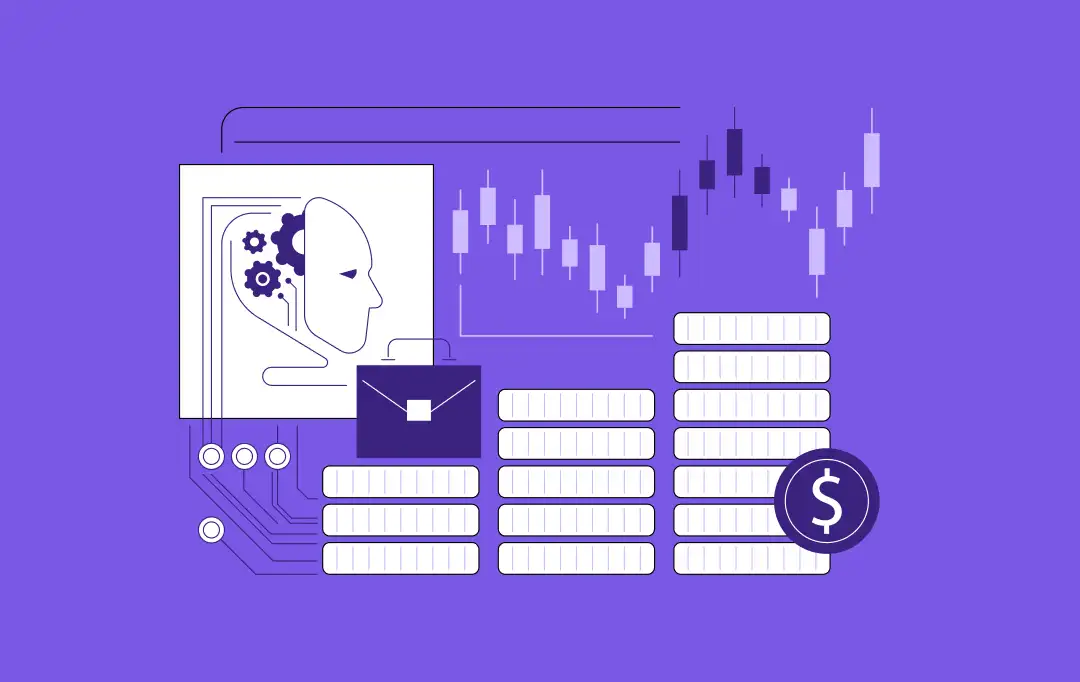
Key takeaways: AI reconciliation for enterprise finance is helping finance teams maintain control despite growing transaction complexity. AI-powered financial reconciliation solutions surfaces mismatches early, improving visibility and reducing close-cycle pressure. Hybrid reconciliation logic combining rules and AI improves accuracy while preserving audit transparency. Real-time financial reconciliation strengthens compliance readiness and reduces manual intervention. Successful adoption…

How to Develop an AI Chatbot for Education Platforms in UAE: Architecture, Cost, and Timeline
Key Takeaways AI chatbots are helping UAE institutions handle repetitive queries, reduce response delays, and improve the availability of student support. Bilingual capability, PDPL compliance, and integration with LMS and student systems are essential for successful deployment. Costs typically range from AED 150,000 to AED 1.47M ($40K–$400K), depending on integrations, personalization, and language support. AI-powered…
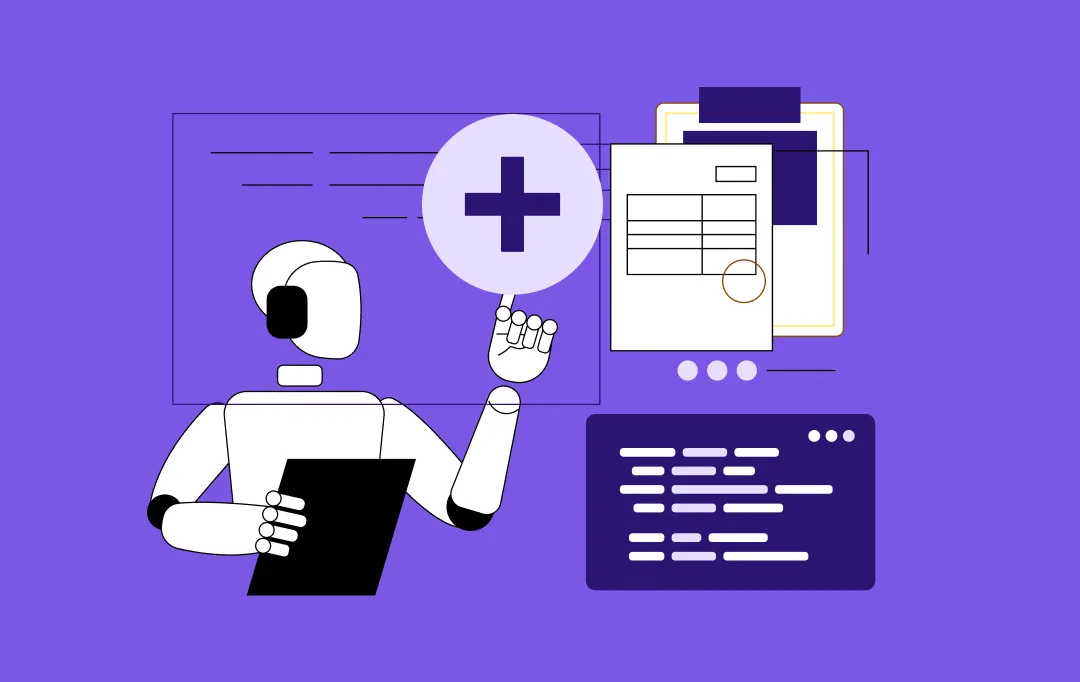
How AI in Healthcare Administration Cut Staff Workload by 40%
Key takeaways: AI automates claims, scheduling, intake, and documentation, cutting repetitive work and freeing staff to focus on oversight and patient coordination. AI validation tools flag incomplete records before submission, reduce avoidable denials by 10–20%, and improve clean-claim performance, enhancing revenue predictability. EHR and note-processing AI reclaim thousands of staff hours in large health systems,…





















